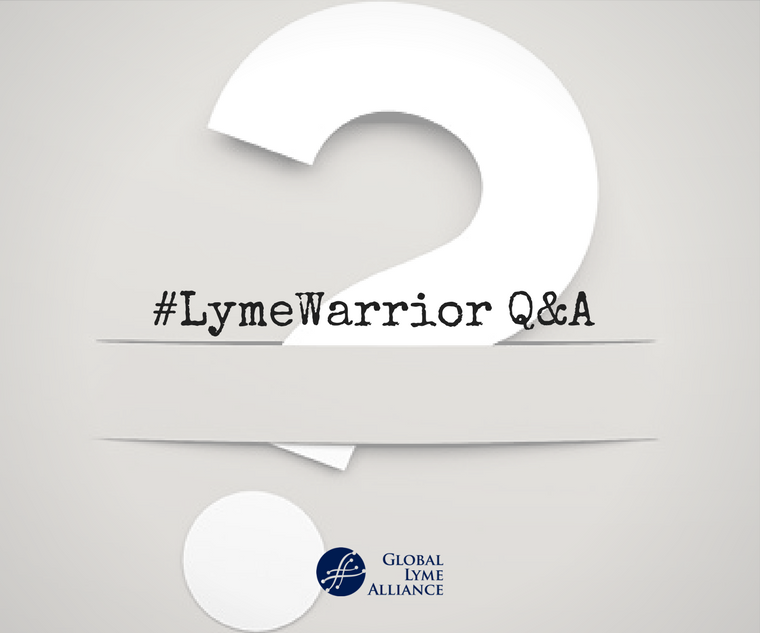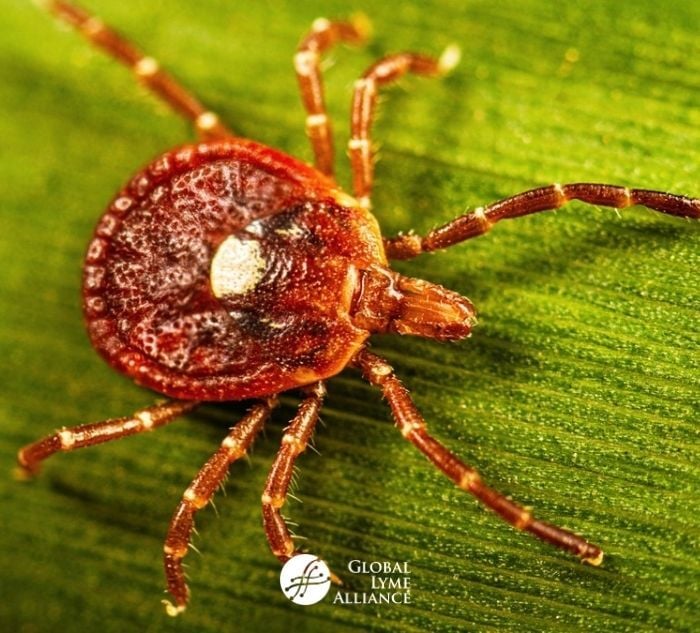
by Jennifer Crystal
Every few months, Jennifer Crystal devotes a column to answering your questions. Here are her answers to questions she has recently received. Do you have a question for Jennifer? Email her at jennifercrystalwriter@gmail.com.
Q. You once mentioned that a scan helped doctors to learn that you weren’t getting enough oxygen to the left side of your brain. What type of scan was it? And how did doctors know the poor oxygenation was caused by Babesia and not by another tick- borne illness?
A. I have had both MRIs and SPECT scans. It was the SPECT scan that allowed my doctor to specifically see that the left side of my brain was not getting enough oxygen. That SPECT scan was done 11 years ago; you may want to talk to your doctor to see if that is still the most accurate scan you can get.
As I described in my Air Hunger post, Babesia is a parasite that feeds on the oxygen in the red blood cells, depriving the patient of much-needed oxygen. In my case, my doctor knew the infection had flared up again because of the scan. I was also having symptoms of babesia including air hunger, post-exertional fatigue, and hypoglycemia. It’s important that you find a Lyme Literate Medical Doctor (LLMD) who can accurately diagnose and treat you, and who will know your case if and when you relapse.
Q. How long does a Herxheimer reaction last, and is there anything that will help speed up the process or lessen its effects?
A. A Jarish-Herxheimer reaction commonly referred to as a “Herx”, is when bacteria dies off faster than the body can eliminate them, making the patient feel worse before they feel better. This can seem counter-intuitive because when you take medication for an infection, you expect to feel better. But when you’re killing off a lot of spirochetes—especially if you’ve been sick for a long time—a Herxheimer reaction is natural and can be viewed as a good sign that the medication is working.
That said, a Herx can feel awful. Your fatigue is worse, your body feels laden with toxins, and you can barely move from bed except to run to the bathroom. The actual elimination of dead bacteria can be surprisingly intense; the first time I had a Herxheimer reaction, I couldn’t believe how often I was in the bathroom, or what was coming out of me. I can only describe it as “toxic bodily waste.”
For me, Herxheimer reactions tended to last up to a week or two, and then pass. Sometimes they were just a couple days long. It all depends on the patient, though. I know patients who have Herxed for a month or more. No matter how intense your Herxheimer reactions are, though, there are a few things you can do to lessen your suffering. These techniques worked for me:
- Pulse your medications: Some doctors will have their patients take their antibiotics for a certain number of days or weeks, or then have them stop for a while to allow the body time to eliminate the dead bacteria. Other doctors switch up medications at certain intervals. Personally, I took single day breaks from medication when the Herxheimer reactions were especially intense.
- Figure out which of your medications is causing the Herxheimer reaction. Herxheimer reactions can be caused by herbal supplements, not just by antibiotics or antimalarial medication. I find it’s best to only change one thing at a time in my own protocol; if I increase a homeopathic drop, I wait awhile to see how that goes before altering the dosage on a medication.
- Eat foods that are known to help you detox: For me, lemon and onion work well; other patients use apple cider vinegar, or even intravenous Vitamin C, though this last option did not work well for me. Remember, everyone is different and you and your doctor need to figure out what’s best for you.
- Drink lots of water to help flush your system.
- Sweat: Those pouring night sweats are annoying, especially when you’re changing pajamas and sheets several times a night, but it means the infection is leaving your body. Some people find that light exercise helps. For me, though, exercise only made me feel worse. Others use infrared saunas to increase sweating. Personally, I can not handle the intense heat.
- Electrolytes: Because you’re sweating so much, your electrolytes may become depleted. I find it helps to drink an electrolyte-infused beverage (try ones that are just water-based, without added sugar) to keep my sodium and potassium levels balanced. Sweating out spirochetes or parasites isn’t all that different from doing an intense cardiovascular workout, so you should consider how the electrolyte water is helping you to replenish your body.
- Lymphatic drainage: When I’m herxing, bacteria tends to back up in my head, and my integrative manual therapist does lymphatic drainage and cranial sacral therapy to help open up flow from my brain. He also does neurofascial processing on organs that help the body detox, such as the liver. Note: avoid deep tissue massage at these times since it can hold toxins deeper in your body, making you feel worse.
These are only the detox methods that have worked best for me. There are many others recommended by both patients and doctors. At the 2017 International Lyme and Associated Diseases Society conference in Boston, I heard about curcumin, also known as turmeric, a member of the ginger family that acts as an anti-inflammatory and which has many uses to help mitigate Herxheimer reactions. Talk with your LLMD, and with other patients, about what works best for you.
Q. I know you’ve explained that you can’t give medical advice, but can you please tell me what your protocol was?
A. When you hear a story of someone in remission, it’s natural to want to know what they did to get there. But as I’ve explained in previous posts, telling you my specific protocol (which is ever-changing) is not the point, because every single case of tick-borne illness is different. Even if your symptoms are similar to mine, our individual cases are guaranteed to be different in terms of how long we were sick, how long we went undiagnosed, whether our infections spread to the central nervous system, where else in the body the infections have spread, whether we have co-infections (and which particular ones), and, most importantly, how we responded to any given treatment. An antibiotic that worked well for me might not work at all for you. My protocol is tailored to my specific case, and yours needs to be, too. You and your LLMD may want to check out Dr. Richard Horowitz’s books Why Can’t I Get Better? and How Can I Get Better? Both books outline specific treatments for specific combinations of tick-borne illnesses.
In closing, let me say that in the past I’ve written about the big picture of what has helped me the most: a combination of medication and homeopathic supplements; nutritional supplements; a gluten-free, sugar-free diet; cognitive behavioral therapy; integrative manual therapy; talk therapy; and neurofeedback. I recommend a holistic or integrative approach that encompasses both Western and Eastern modalities as well as adjunct therapies. I recommend lots of rest and self-care. I recommend seeking out a helpful support system of concerned individuals. Unfortunately, I cannot recommend specific medications, and I hope you will understand that I withhold that information in the hope that you will find the right protocol fly working with your LLMD.

Jennifer Crystal
Writer
Opinions expressed by contributors are their own. Jennifer Crystal is a writer and educator in Boston. Her work has appeared in local and national publications including Harvard Health Publishing and The Boston Globe. As a GLA columnist for over six years, her work on GLA.org has received mention in publications such as The New Yorker, weatherchannel.com, CQ Researcher, and ProHealth.com. Jennifer is a patient advocate who has dealt with chronic illness, including Lyme and other tick-borne infections. Her memoir, One Tick Stopped the Clock, was published by Legacy Book Press in 2024. Ten percent of proceeds from the book will go to Global Lyme Alliance. Contact her via email below.






